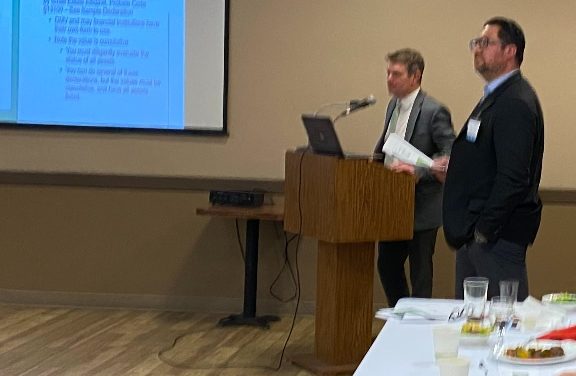Four attorneys gave a guide to transferring estate without going through probate at the Joseph B. Campbell Inn of Court Feb. 8.
David Colella, Lisa Crane, Susan Grabarsky and Mark McGuire presented in the meeting of 38 people at the American Legion Post #106 in Redlands.
They offered the following procedures, each of which can be supplanted by probate.
Whether a person should use one process or another is a question to ask an attorney familiar with their individual case. The Judicial Branch of California also provides information on simplified procedures to transfer an estate on their website.
- Joint tenancy assets
- Vehicles, houses








